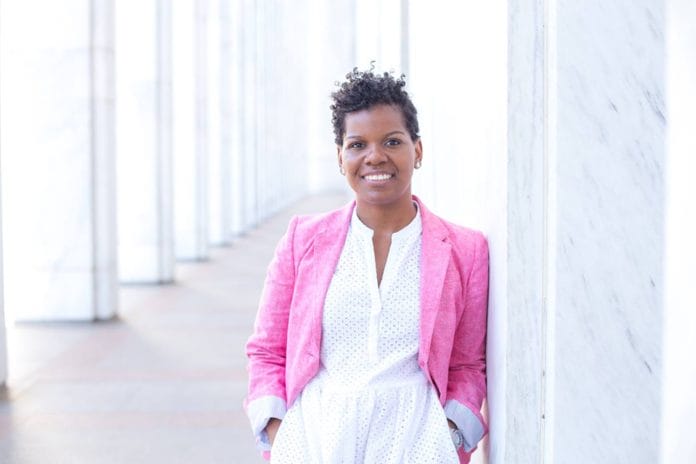Advocacy is a huge part of working with the community and different populations. When I think of advocacy, my first thought is Alicia Murria, RDH, MS(c). She is the executive director of a non-profit and has been a hygiene faculty member with a dental technology company since 2017.
My other articles in this series were about Amanda Berthiaume, RDH, who works with inmates, and Paula Morrison, RDH, who works in school-based dentistry.
Machado: How many years have you been a hygienist? How long have you been at your present job?
Murria: I currently work as a clinical hygienist in a restorative, general dental practice. I work as a hygiene faculty member with Align Technology, a dental technology company sharing clinical education programs with general dentistry teams all over North America.
I am also the executive director of a 501c3 non-profit organization called Hygienists for Humanity, which helps the underserved and communities experiencing homelessness all over the country gain access to dental hygiene products and services.
Machado: What do you do in this work setting? Job tasks? Treatments or procedures? Education?
Murria: I work as an inflammation prevention specialist, helping everyone I encounter, both patients and professionals, understand the role of the hygienist as it relates to reducing and preventing oral inflammation and chronic systemic disease. In the public health setting, I ensure that the patients understand the oral-systemic link to create value for following up with dental recommendations.
I work to create opportunities for professionals to give back to the community of their choice. Daily, we work on marketing, operational record-keeping, and community outreach. We work with national agencies to create partnerships to help more people get access to the care they deserve.
Machado: How did you get to this position?
Murria: I am extremely passionate about continuing education and connecting with peers and colleagues. Through continuing education, national conferences, and networking opportunities, my career path directed me toward my current roles. Being active in dental hygiene-related advocacy, being present at dental hygiene professional development conferences, and furthering my dental hygiene education have solidified my role as a leader in the dental industry.
Machado: How did creating your non-profit come about?
Murria: At local and national continuing education conferences, excess products were being donated to individuals, which sparked an idea for exhibitors to take the excess products and donate them to the communities we visit for conferences. Exhibitors may donate directly from the exhibit floor, or we can make connections and establish a continual relationship of contributions.
Machado: What does it take to be the executive director of a non-profit? Patience, optimism, and leadership?
Murria: Without any one of these qualities, it makes it harder for our daily tasks to be accomplished. Hygienists for Humanity started in September 2017. I’m based in Maryland and worked with an accountant to file 501c3 registration forms.
Machado: Why did you decide to work in this setting?
Murria: I’ve always been passionate about access to care. The reason I got into dentistry is to help people. Naturally, as I began to network and explore options outside of clinical hygiene, it seemed as though everything fell into place. It feels good to take what I know and use it to help others.
Machado: What are some things you would like others to know about hygienists in this specific work setting?
Murria: The work I’m doing is so gratifying. Helping others to reach career heights and encouraging them to follow their heart comes naturally, but it does take a lot of personal time. You must be invested in helping others as well as creating a balance between work and life.
Machado: How is this work setting different from other dental hygiene settings?
Murria: This role is different because it is self-guided, yet very similar to clinical hygiene because the work is autonomous. The commute to work consists of a car, a plane, and a cab. I’m working with agency directors behind the scenes and meeting eager volunteers or program attendees looking to gain an enlightened experience. It’s a ton of fun, always a new experience, and I feel so blessed.
Machado: Are there any specific requirements that are needed to work in this specific setting?
Murria: Organization and communication skills are key in working in this setting. Prompt responses to emails and developing relationships are assets to this type of role. This communication involves being able to follow through with tasks from idea to execution.
Machado: Are there any other comments or info you would like to add regarding your dental hygiene career or job position?
Murria: A lot of people ask how I got to this position. I often reflect on how I got here, and I can honestly say that it wasn’t one thing I did to help me get here. It was a culmination of multiple things that offered me different opportunities. If I could offer any advice, it would be to stay open and follow your heart. Take opportunities as they come, and listen to your heart. I hope to see you around at networking events!
In Closing
Working for or starting a non-profit is only one example of the many setting types a hygienist can work. A big thank you goes to Alicia for taking the time to share her career path!












